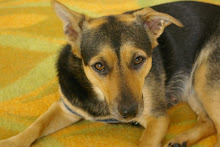Reporters from the Chicago Tribune and the International Herald Tribune announced that the practice of adding melamine to food for pets is common in China and has been going on for years.
Factories in China use coal to create melamine, which is later sold to be used in plastics and as an industrial fertilizer. The leftover scraps of melamine, usually small chunks, are sold to local businesses who turn the chunks into powder and add it to animal feed to raise the nitrogen level of the feed. Since the protein content of the feed is measured by measuring the nitrogen levels in the feed this makes it appear that the feed has more protein in it than it actually contains. This also boosts the price that the Chinese businesses can charge, since retailers will pay more for "premium" food that contains more protein. One pet food manufacturer who spoke on condition of anonymity said ""If you add it in small quantities, it won't hurt the animals," and that he has been mixing melamine in his product for years.
There is almost no food safety and standards regulation in China, and factory workers and managers interviewed by the Western press admit that spiking pet food with melamine to boost the price is a common and widespread practice. While apparently this practice has been going on for a long time, investigators are still trying to find the cause of the 2007 crisis where pet food spiked with melamine killed thousands of pets and made thousands more critically ill.
In response, the FDA has banned all imports of pet food ingredients from China indefinitely. The Department of Agriculture started its' own investigation when it quarantined 6,000 hogs around the country who tested positive for melamine after being fed salvaged pet food. It's reported that 45 people have eaten pork products containing melamine, but none have reported any serious illness as a consequence of the tainted food.
The recall started with pet food manufacturing giant Menu Foods, who produced food for most of the major pet food brands in the US. In sworn testimony before a Federal investigative committee the President of Menu Foods said that Menu Foods was aware of a problem with their food but did not issue a recall and in fact did not issue a recall until one of their customers, Iams brand pet food, told Menu Food that they had received complaints and that even if Menu Foods was not going to do a recall that Iams was planning one and would no longer do business with Menu Foods. Iams recall forced Menu Foods to go public with the information that there was a problem with the food they produced.
US pet owners, horrified by the lack of regulation that has led to the deaths and illness of so many beloved pets, have mobilized quickly thanks to an Internet campaign and the efforts of Senator Dick Durbin (D-IL) who has written legislation calling for more Federal oversight and regulation of the pet food manufacturing industry and has spoken out publicly calling for the FDA to do a better job inspecting food ingredients imported from other countries.






No comments:
Post a Comment